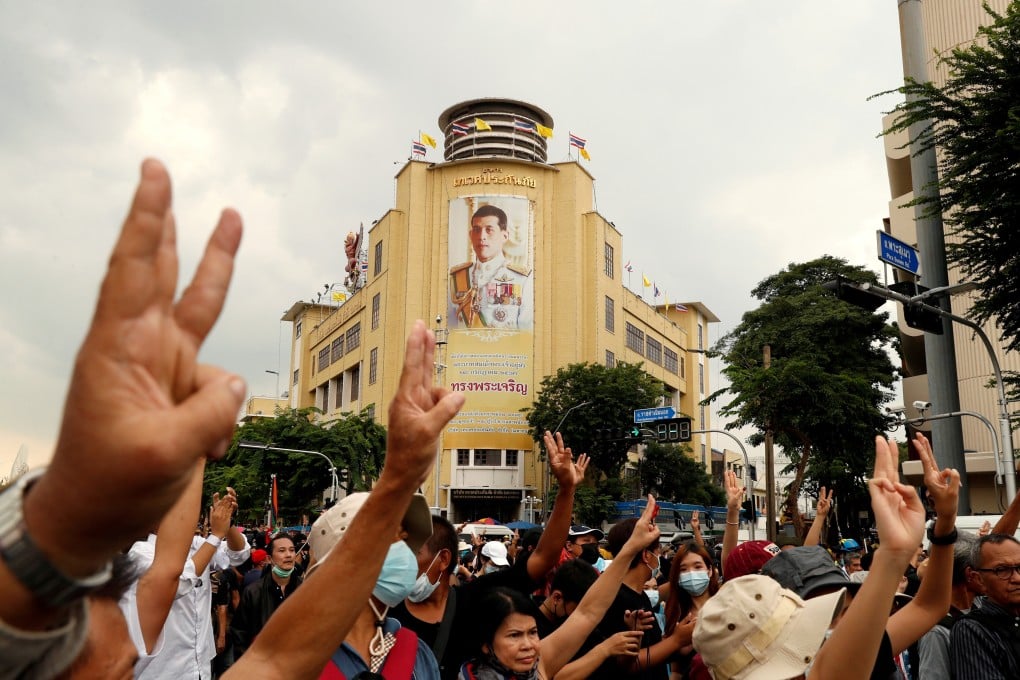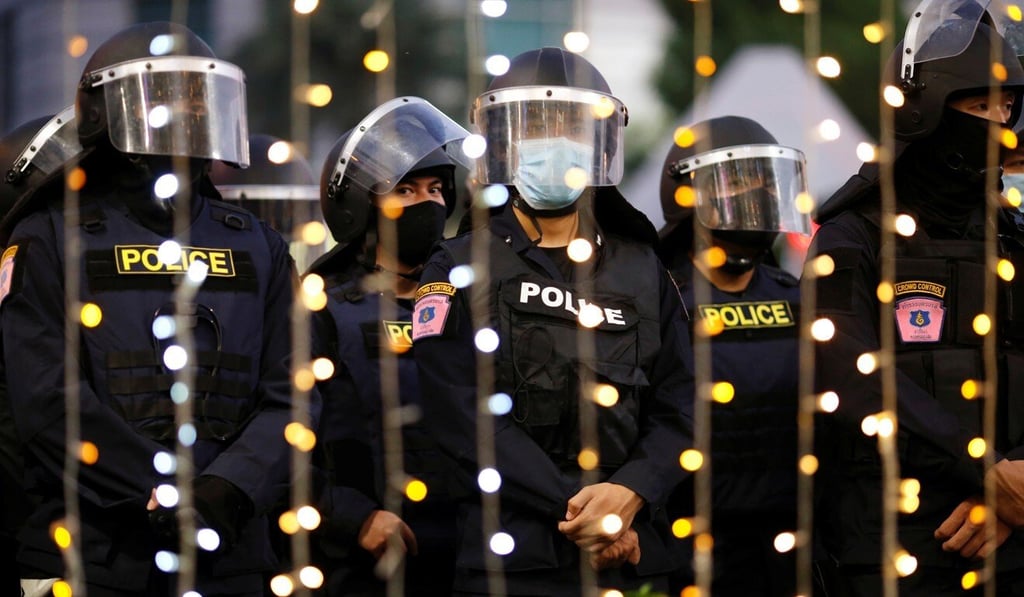Thailand ramps up use of royal insult law, further stoking dissent among activists
- Authorites have doubled down on the use of Section 112 or the lèse-majesté law, including on opposition politician Thanathorn Juangroongruangkit
- But to activists rallying for constitutional and monarchy reform, the law no longer holds the sway it once did and analysts say it could fuel more protests

At least 54 people – including Thais below the age of 18 – were charged under the Thai lèse-majesté law between November last year and January 19.
On Tuesday, the former government official, Anchan – a woman in her 60s, whose last name was withheld to protect her relatives – was given 87 years in jail for 29 violations of Section 112 involving sharing posts on YouTube and Facebook, with each offence punished by a three-year prison term. Her sentence was halved as she had previously acknowledged her violations.
According to the Thai Lawyers for Human Rights Centre, the punishment was the most severe since a Bangkok office worker by the name of Wichai was in 2017 sentenced to 70 years in jail for 10 Facebook posts deemed to have contravened the royal defamation law.
